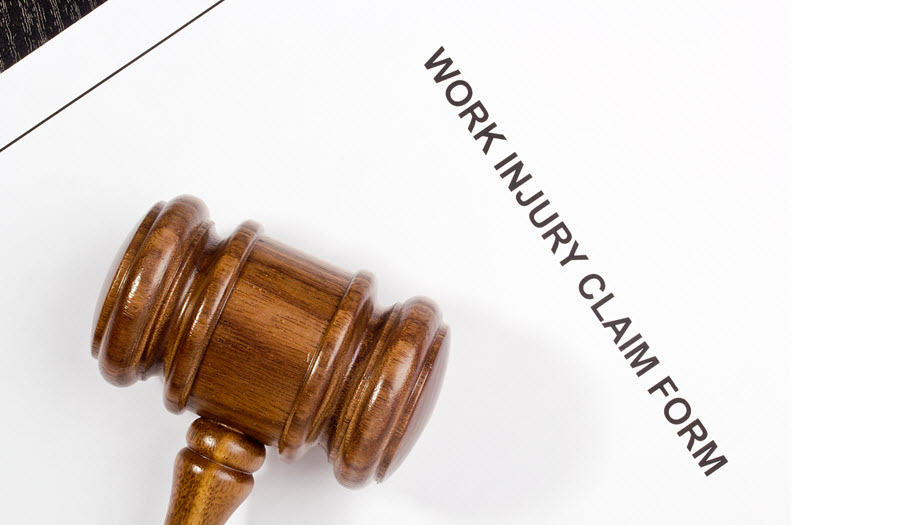Omaha Workers Comp Attorney | High & Younes LLC
May 13, 2025 | Workers' compensation
Navigating workers compensation claims should be easy. It’s not. Anyone’s that been injured on the job and has had to seek workers’ compensation benefits will tell you that the claims process can in fact be overwhelming. From wrestling with mountains of paperwork to negotiating with insurance adjusters or trying to decipher the complex workers’ compensation laws in Nebraska, filing a claim for the benefits that are rightly yours is anything but straightforward.
At High & Younes Attorneys LLC, we understand that getting back on your feet after a workplace injury can be tough. We’ve seen the devastation that workplace injuries can have on workers firsthand. We’re committed to helping injured workers understand their rights and advocating on their behalf. Below, we discuss some of the complexities of workers compensation cases.
The Complex Nature of Workers’ Compensation Cases
Nebraska’s workers compensation system is intended to be straight forward. It is designed to provide injured workers with financial support following work related injuries. However, in reality, navigating the system is far more complicated than what the average worker can handle. Below, we share some of the most common challenges injured workers are faced with when seeking to access medical treatment and wage benefits following a workplace injury.
- Disputed claims
It’s not uncommon for employers or their insurance companies to deny injury claims. This is true even when the injury clearly occurred on the job. Employers and insurance companies may use various excuses to deny claims and avoid losses. These disputes can delay or completely block your access to much needed medical treatment as well as wage benefits.
- Pre-existing conditions
The presence of a pre-existing condition can be used by insurance companies and employers to deny your claim or reduce your benefits. If you have a prior injury or a chronic health issue, insurers may argue that your current condition was not caused by your job. Injured workers have to provide evidence to show that their current condition was a result of their job tasks or occurred at work. This includes showing that the workplace incident aggravated a pre-existing condition. This often requires medical evidence and expert testimony.
- Delayed medical treatment
When you’re injured at work, your health and well-being should be your top priority. It’s important to seek medical treatment as soon as possible after your injury. This also helps to prevent or reduce the risk of complications developing later. Seeking immediate medical treatment is also important for your workers’ compensation claim. Your medical records will be used as evidence to show your condition is a result of an incident at work. Unfortunately not all injuries are apparent immediately. Many injured workers feel ok immediately after the incident and put off seeing a doctor. When the symptoms of the injury become more pronounced a day or two later, they seek medical treatment. Unfortunately, insurance companies can argue that the condition was a result of another incident that may have occurred within the period of delayed medical treatment.
- Missing deadlines
Workers’ compensation claims have strict deadlines that must be adhered to. If you fail to file your claim within the stipulated timeframe, you may forfeit your rights. For example, your employer must be notified of your injury within 10 days of the incident. The deadline for filing a workers compensation case in the state is 2 years from the date of the injury. It is therefore best to start the process of making the claims as early as possible.
- Complicated paperwork and requirements
Filing a workers’ compensation claim involves a lot of paperwork. Insurance providers and employers also have specific requirements for the claims process. Navigating the claims process and managing your paperwork can be complex. A simple mistake on your paperwork can result in your claim being denied or cause delays in accessing your benefits.
- Pressure to return to work
Employers lose a lot of money when workers are out sick or injured. Employers may put pressure on workers to return to work as a result. In some cases, workers may feel pressured to return to work as they fear losing their jobs. However, returning to work earlier than recommended may result in worsening of your condition.
- Permanent disability and future compensation
Some workplace injuries can have long term consequences. They may result in long term or permanent impairment. Determining the compensation for these cases can be complex. It involves assessing medical records, earning capacity, future treatment needs and more. Insurance companies are also often resistant to payout high compensation for permanent disability cases. They may dispute your case.
With so many potential pitfalls, having a skilled Omaha Workers’ comp attorney in your corner can be extremely helpful. In fact, it is essential for the best possible outcome. We at High & Younes Attorneys, LLC are committed to supporting injured workers. Contact us now to schedule your free consultation and get started with your pursuit for justice.

Omaha Workers Comp Attorney

